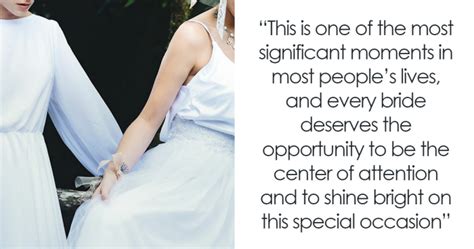
Showing up late, wearing white, and skipping the RSVP are just a few of the major wedding faux pas etiquette experts warn guests to avoid. Navigating the nuances of wedding guest etiquette can be tricky, but making a misstep can have lasting repercussions. Experts are now shedding light on the top 10 mistakes guests commonly make, potentially jeopardizing relationships with the happy couple and other attendees.
The cardinal sin, according to Diane Gottsman, an etiquette expert and founder of The Protocol School of Texas, is arriving late for the ceremony. “Walking in late is disruptive and disrespectful to the couple and the other guests,” she emphasizes. Punctuality sets the tone for the entire celebration, reflecting consideration for the meticulously planned event.
Another major faux pas involves attire. Wearing white or any shade closely resembling white is universally considered inappropriate, as it risks upstaging the bride. Similarly, dressing too casually, such as in jeans or shorts (unless specifically indicated in the invitation), can be seen as disrespectful. The attire should reflect the formality of the occasion.
RSVPing is not merely a formality; it’s a crucial element in the wedding planning process. Failing to RSVP or changing your RSVP at the last minute creates logistical nightmares for the couple, affecting seating arrangements, catering numbers, and overall budget. “It’s important to respond by the deadline and stick to your answer,” advises Lizzie Post, co-president of the Emily Post Institute and etiquette expert. “The couple needs to give a final headcount to their vendors.”
Bringing an uninvited guest, also known as a “plus-one,” is another significant breach of etiquette. Unless the invitation explicitly states “and guest,” assuming you can bring someone is presumptuous. The couple has carefully curated their guest list, and adding an unexpected attendee can disrupt seating arrangements and increase costs.
Gift-giving also presents opportunities for etiquette blunders. Deviating from the couple’s registry is generally discouraged, as the registry reflects their specific needs and preferences. Giving cash is acceptable and often appreciated, but it should be presented tastefully and appropriately. Furthermore, failing to send a thank-you note promptly after receiving a gift is considered impolite.
Overindulging in alcohol is a surefire way to make a negative impression. While weddings are celebrations, excessive drinking can lead to embarrassing behavior and disrupt the event for others. Maintaining control and moderation is crucial.
Spending excessive time on your phone during the ceremony or reception is also frowned upon. It signals disinterest and disrespect for the couple and the proceedings. “Be present in the moment and enjoy the celebration,” suggests Gottsman. Minimizing phone use allows you to fully engage with the event and connect with other guests.
Dominating the dance floor or commandeering the DJ’s playlist are other common mistakes. Weddings are about celebrating the couple, not showcasing your dance moves or musical preferences. Being mindful of other guests and respecting the DJ’s role are essential.
Complaining about the food, venue, or any other aspect of the wedding is highly inappropriate. Weddings are often expensive and stressful to plan, and voicing negativity is disrespectful to the couple’s efforts. Instead, focus on the positive aspects of the celebration and offer genuine compliments.
Lastly, failing to introduce yourself to other guests can create awkward social situations. Weddings are opportunities to meet new people and expand your social circle. Making an effort to mingle and engage in conversation enhances the overall atmosphere of the event.
By avoiding these common etiquette mistakes, wedding guests can ensure they contribute positively to the celebration and maintain harmonious relationships with the happy couple and fellow attendees. Adhering to these guidelines demonstrates respect, consideration, and a genuine desire to celebrate the special occasion appropriately.
Detailed Breakdown of the 10 Wedding Guest Mistakes:
-
Arriving Late: Punctuality is paramount. Arriving late disrupts the ceremony and shows a lack of respect for the couple and other guests who made an effort to be on time. This disruption is amplified if the ceremony is being photographed or recorded. Guests who arrive late may miss important parts of the ceremony, impacting their overall experience and potentially requiring them to be seated in a less-than-ideal location, far from the main action. Furthermore, late arrivals can cause distractions for the wedding party, who may become anxious or concerned about the missing guests. In some cases, latecomers may even be refused entry to the ceremony until a more appropriate moment, such as during a transition or break. The symbolic importance of the wedding ceremony often signifies new beginnings and careful planning, making promptness a gesture of support and respect for the commitments being made.
-
Wearing White (or Similar Shades): This is perhaps the most well-known wedding etiquette rule. Wearing white, ivory, cream, or any shade that could be mistaken for white is a significant faux pas. The color white is traditionally reserved for the bride, and wearing it risks upstaging her and drawing unwanted attention. Even if the bride is wearing a non-traditional color, it’s best to avoid white altogether. This rule also extends to wearing outfits that have significant white patterns or embellishments. Consider the lighting in the venue as well; a dress that looks slightly off-white in natural light might appear stark white under artificial lighting. Err on the side of caution and choose a different color. Beyond the obvious disrespect, wearing white can create unnecessary tension and awkwardness between the guest and the bridal party. Some brides may even perceive it as a deliberate attempt to undermine their special day.
-
Failing to RSVP (or Changing it Last Minute): The RSVP is a crucial tool for the couple to plan their wedding accurately. It allows them to determine the final headcount for catering, seating arrangements, and other logistical considerations. Failing to RSVP by the deadline or changing your RSVP at the last minute can create significant problems for the couple, potentially costing them money and causing unnecessary stress. For example, caterers often charge per person, so an inaccurate headcount can result in wasted food and resources. Seating arrangements are carefully planned to ensure guests are seated with people they know and enjoy, and a last-minute RSVP change can disrupt these plans. If you are unsure whether you can attend, it’s best to communicate with the couple as early as possible to discuss the situation. If your plans change unexpectedly, inform the couple immediately, even if it’s past the RSVP deadline. They may appreciate the notice and be able to adjust accordingly.
-
Bringing an Uninvited Guest: Unless the invitation explicitly states “and guest” or includes a line for a plus-one, assuming you can bring someone is inappropriate. The couple has carefully curated their guest list, considering factors such as budget, venue capacity, and relationships with their guests. Adding an unexpected attendee can disrupt seating arrangements, increase costs, and potentially make the couple feel obligated to accommodate someone they don’t know well. Bringing an uninvited guest can also create awkward social situations, as the guest may not know anyone else at the wedding. If you are unsure whether you can bring a guest, it’s best to ask the couple directly. However, be prepared for them to say no, and respect their decision. If you are single and attending the wedding alone, consider it an opportunity to meet new people and mingle with other guests.
-
Deviating from the Registry: The couple’s wedding registry is a carefully curated list of items they need or want to start their married life together. Deviating from the registry can result in the couple receiving duplicate gifts or items they don’t need or like. While it’s tempting to give a unique or personalized gift, it’s generally best to stick to the registry unless you know the couple extremely well and are confident they will appreciate your alternative gift. If you choose to give a gift that is not on the registry, be sure to include a gift receipt in case the couple wants to exchange it. Cash is also a perfectly acceptable and often appreciated gift, especially if the couple is saving for a specific purpose, such as a down payment on a house. However, be sure to present the cash in a tasteful and appropriate manner, such as in a card or a small gift box. Avoid giving checks made out to just one person, and instead make it out to both individuals.
-
Overindulging in Alcohol: Weddings are celebrations, but it’s important to drink responsibly and avoid overindulging in alcohol. Excessive drinking can lead to embarrassing behavior, disrupt the event for other guests, and potentially damage your relationship with the couple. It’s essential to be mindful of your alcohol consumption and pace yourself throughout the evening. Drink plenty of water to stay hydrated, and avoid mixing different types of alcohol. If you are feeling tipsy, take a break from drinking and focus on eating or socializing. If you see someone who is overindulging, offer them water or suggest they take a break. Remember, the goal is to celebrate the couple’s special day in a respectful and enjoyable manner.
-
Excessive Phone Use: Spending excessive time on your phone during the ceremony or reception is disrespectful to the couple and other guests. It signals disinterest and a lack of engagement with the event. Turn off your phone or put it on silent during the ceremony, and avoid checking it frequently during the reception. If you need to make a call or send a text, step away from the main gathering to do so. Avoid posting photos or videos of the wedding on social media without the couple’s permission. They may want to be the first to share photos of their special day. Be present in the moment and enjoy the celebration. Use the opportunity to connect with other guests and celebrate the couple’s love.
-
Dominating the Dance Floor/DJ’s Playlist: While dancing is often a highlight of wedding receptions, it’s important to be mindful of other guests and avoid dominating the dance floor. Give everyone a chance to dance and avoid monopolizing the space. If you have a particular song you’d like to hear, you can politely request it from the DJ, but avoid repeatedly pestering them or demanding that they play your music. Remember, the DJ is there to cater to the couple’s preferences and create a fun atmosphere for everyone. Be respectful of their role and avoid interfering with their work. Avoid taking over the DJ booth or attempting to change the playlist without permission. The wedding is about celebrating the couple, not showcasing your dance moves or musical preferences.
-
Complaining: Complaining about the food, venue, or any other aspect of the wedding is highly inappropriate and disrespectful to the couple. Weddings are often expensive and stressful to plan, and voicing negativity undermines their efforts. Even if something is not to your liking, it’s best to keep your thoughts to yourself or share them with a close friend in a private setting, away from the couple and other guests. Focus on the positive aspects of the celebration and offer genuine compliments to the couple and their families. Thank them for inviting you to share in their special day and express your appreciation for their hospitality. A positive attitude will contribute to a more enjoyable experience for everyone.
-
Failing to Introduce Yourself: Weddings are opportunities to meet new people and expand your social circle. Failing to introduce yourself to other guests can create awkward social situations and limit your opportunities to connect with others. Make an effort to mingle and engage in conversation with people you don’t know. Introduce yourself, ask them how they know the couple, and find common interests to discuss. Be friendly and approachable, and avoid sticking to your own group of friends or family members. Remember, weddings are celebrations of community, and making an effort to connect with others will enhance the overall atmosphere of the event. Even a simple “hello” can make a big difference.
FAQ Section
1. What if I genuinely can’t avoid being late to the ceremony due to unforeseen circumstances?
While punctuality is ideal, unforeseen circumstances can indeed arise. Diane Gottsman advises, “If you are unavoidably late, enter as discreetly as possible, preferably during a break or transition, and sit in the back. Avoid drawing attention to yourself.” It’s also a good idea to apologize to the couple later for your tardiness and explain the situation. Consider sending a heartfelt card or making a small gesture to show you value their special day and regret the disruption, even if unintentional.
2. The bride has specified on her invitation that guests can wear certain colors, including a pastel shade close to white. Is it still a faux pas to wear this color?
When the bride explicitly indicates acceptable colors, it’s generally safe to follow her guidance. However, exercise caution. If the specified pastel shade is very close to white (e.g., a very light blush or ivory), it may still be best to avoid it. Lizzie Post from the Emily Post Institute suggests, “When in doubt, err on the side of caution and choose a different color.” You can also discreetly consult with another guest or a member of the bridal party to gauge whether your chosen outfit might be too close to white. Remember, the goal is to avoid any potential for upstaging the bride.
3. I forgot to RSVP by the deadline. What should I do?
If you missed the RSVP deadline, contact the couple (or their wedding planner, if indicated on the invitation) as soon as possible. Apologize for the oversight and inquire whether it’s still possible to attend. Be prepared that they may already have finalized the arrangements and may not be able to accommodate you. If they cannot, respect their decision. If they can accommodate you, be especially mindful of being a gracious guest and expressing your gratitude. Even if you cannot attend due to the late RSVP, sending a thoughtful wedding gift is still a kind gesture.
4. My invitation clearly states “and Guest,” but I recently broke up with my partner. Can I bring a friend instead?
While the invitation allows for a guest, it’s courteous to inform the couple about your change in plans, particularly the fact you will be bringing a friend instead of a romantic partner. As the article mentions, it’s polite to contact the couple and explain the situation. They may have had a specific vision for the guest list, and it’s respectful to give them a heads-up. While they are unlikely to object, transparency is always appreciated. Make sure the friend you bring is someone who will be respectful and contribute positively to the celebration.
5. I can’t afford a gift from the couple’s registry. Is it better to give nothing at all or to give a smaller, less expensive gift?
It’s always better to give a gift, even a small one, than to give nothing at all. The value of the gift is secondary to the thought and effort behind it. If you cannot afford anything on the registry, consider a heartfelt, personalized gift that is within your budget. This could be a handmade item, a framed photo, or a thoughtful card with a handwritten message. You can also contribute to a group gift with other guests to purchase a more substantial item from the registry. Remember, the gesture of giving is what matters most. Even a small, thoughtful gift is a way of showing your support and celebrating the couple’s union.









